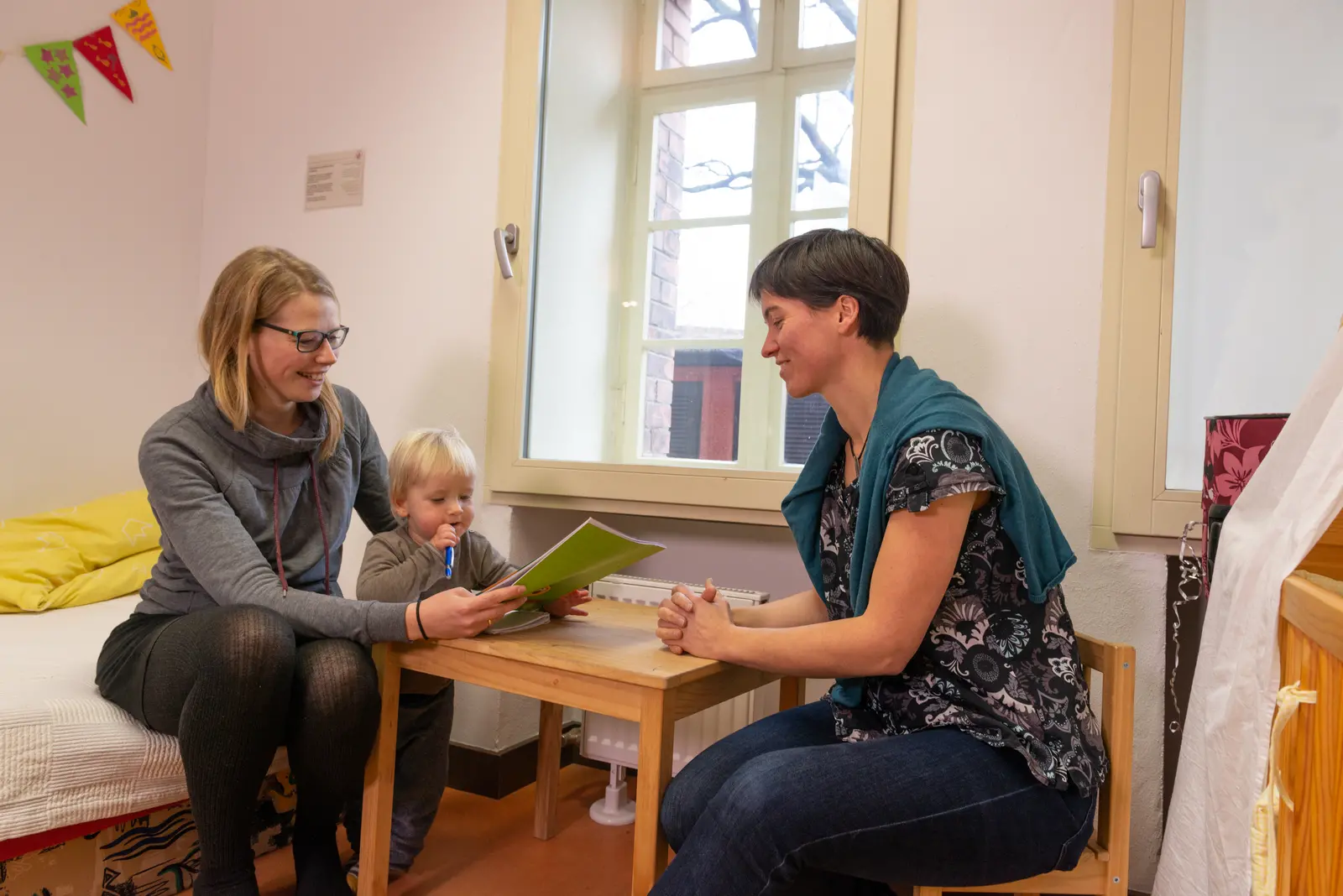Sustainability at the HNEE
Almost exclusively renewable energies
Canteen meals predominantly vegetarian/vegan
Climate-friendly university concept
EMAS-certified since 2009
German Sustainability Award 2025
Pioneer in Practising Responsibility
HNEE stands for lived sustainability and a sustainability management approach that sets standards. We understand and practise → sustainability as a cross-cutting issue, reflected in research, teaching, administration, and infrastructure. Naturally, this cannot be achieved overnight (see → Sustainability Report). It requires a collaborative, holistic approach from within the organisation in order to create impact externally. We see sustainable development as a process that calls for effective design methods, as well as committed and well-trained individuals who can identify potential allies and multipliers, and work together to initiate effective change. In doing so, we take on a proactive role as a pioneer for sustainability — both in society and within the higher education landscape.
Our EMAS award-winning environmental management system, sustainable procurement, and sustainable event management are well established and are being continuously improved.
Working groups on sustainable development promote exchange and collaboration across disciplines and drive innovative ideas forward. This lived sustainability extends well beyond everyday campus life.
Environmental and Climate Protection
HNEE sees itself as a climate-friendly university and consistently relies on green electricity, renewable heat sources, and energy efficiency measures. Since 2007, the university has been sourcing certified green electricity and additionally produces its own electricity through photovoltaic systems. Heat is generated primarily via wood pellet and wood chip heating systems, and partly through heat pumps. The university regularly records and assesses its emissions as part of the → EMAS environmental management system, which has received several awards — including the EMAS Award from the European Commission. Its guiding principle for all emissions is: “Avoid before offsetting.” Since 2014, HNEE has offset unavoidable emissions in cooperation with Ivakale e. V. — a certified climate protection project in Kenya, initiated by HNEE alumni.
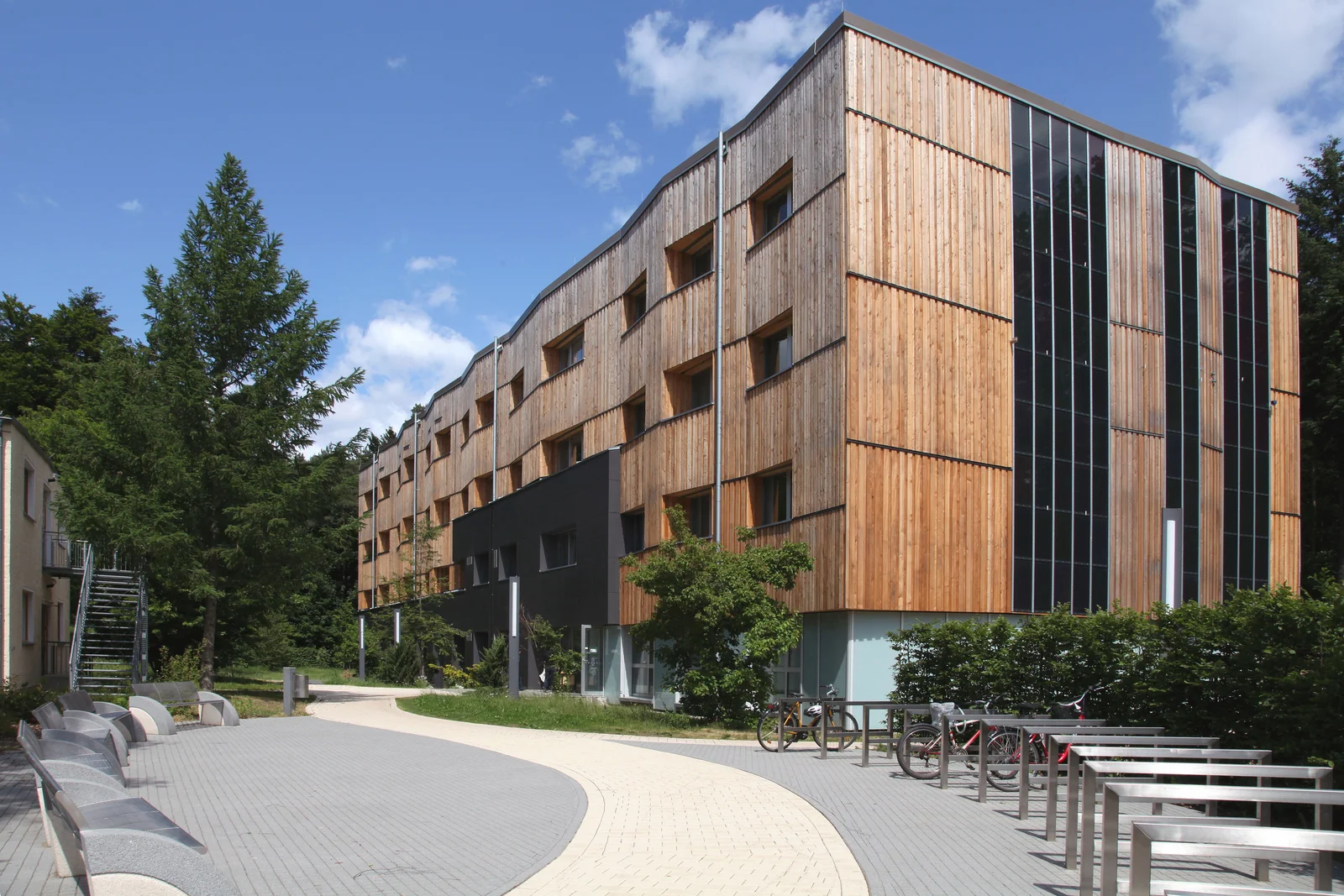
Sustainable Nutrition
HNEE works together with the Studierendenwerk Ost:Brandenburg to continuously develop its canteens in line with sustainability principles. In the → Sustainability Canteen Working Group, students and staff collaborate to strengthen environmentally friendly, climate-conscious, and health-promoting food options. As early as 2022, the HNEE canteens were recognised by the NGO ProVeg as “Planetary Health Canteens.” Every day, vegan and vegetarian dishes are on offer, alongside fresh fruit and vegetables and a salad bar. Meat dishes are served only twice a week. Many products — such as coffee, rice, beef, and potatoes — are 100% organic. The canteens also prioritise fair trade and locally sourced foods. One especially popular initiative is the annual “Climate Meal” competition, in which students submit sustainable recipe ideas, with the winning dishes integrated into the regular menu. The reusable cup deposit scheme is also part of the university’s commitment to a resource-conscious dining experience.
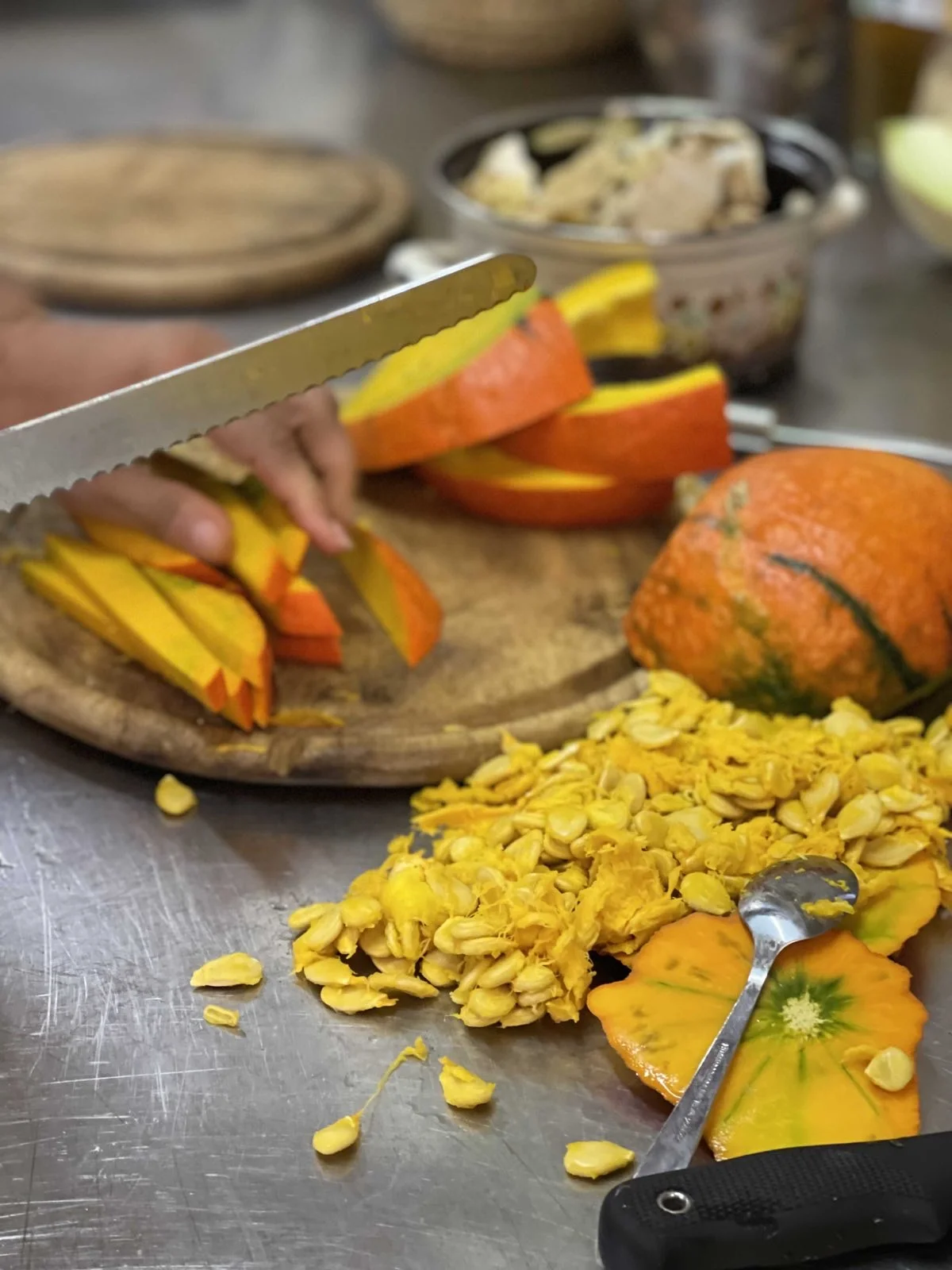
Mobility
Mobility is a key environmental factor at HNEE, as it involves significant emissions and resource consumption — particularly from commuting, business travel, and field trips. The university’s mobility management strategy aims to avoid travel wherever possible or to shift it to low-emission alternatives. Since 2019, short-haul flights have been largely phased out, with digital formats increasingly replacing business travel. The university’s vehicle fleet includes CNG vehicles powered by biogas, and staff also make use of car-sharing services with electric vehicles. For short trips between the city and forest campuses, staff have access to e-bikes and conventional bicycles. Commuting remains a particular challenge, as many members of the university community travel from Berlin and the surrounding region — an area with high potential for reducing emissions.
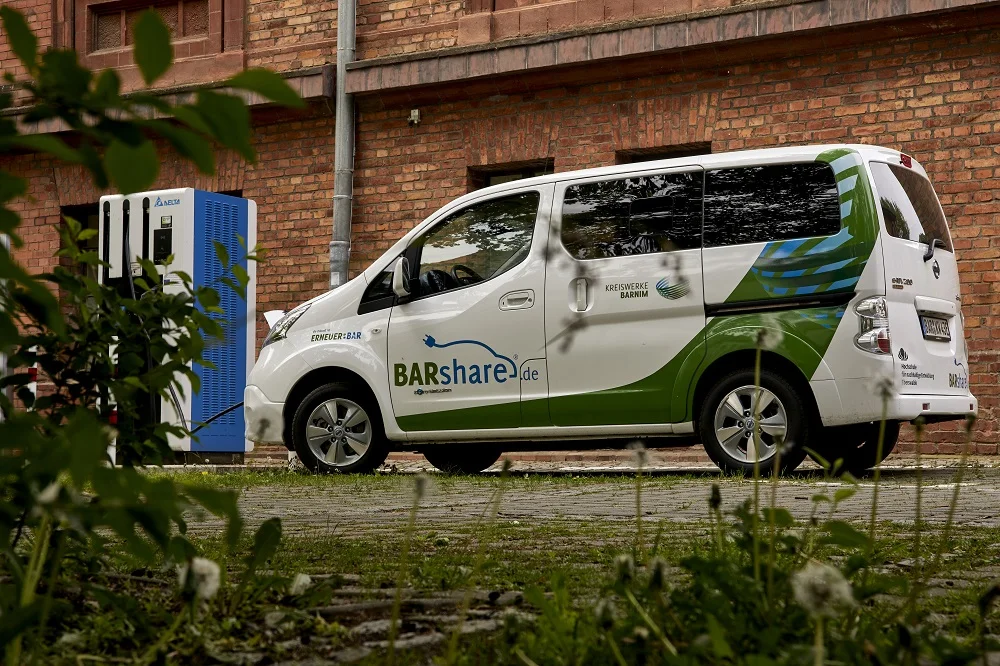
Procurement
HNEE pursues clear sustainability goals in its procurement processes, as defined in its guideline for sustainable procurement. In addition to meeting legal requirements, the university applies further criteria such as resource conservation, energy efficiency, waste reduction, and short transport routes. All procurement activities — whether centralised or decentralised — are guided by a balance between environmental considerations, social responsibility, and economic viability (see → Sustainable procurement at HNEE). One example of good practice is the university’s tender for recycled printer paper, which was recognised by the Federal Environment Agency as a best-practice case.
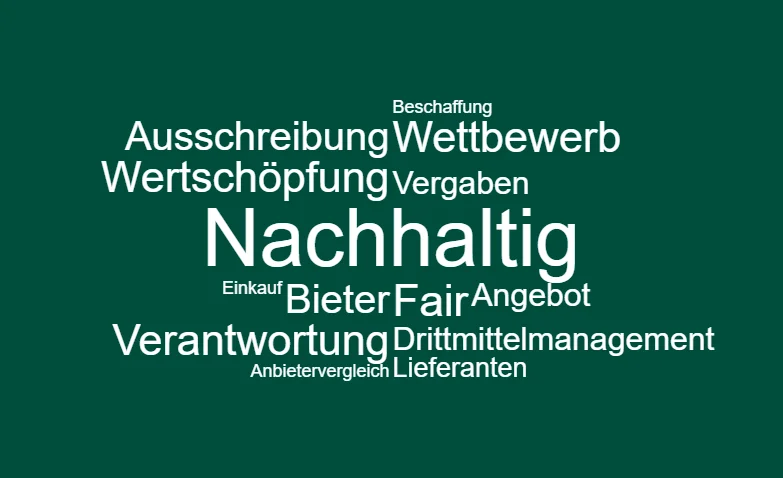
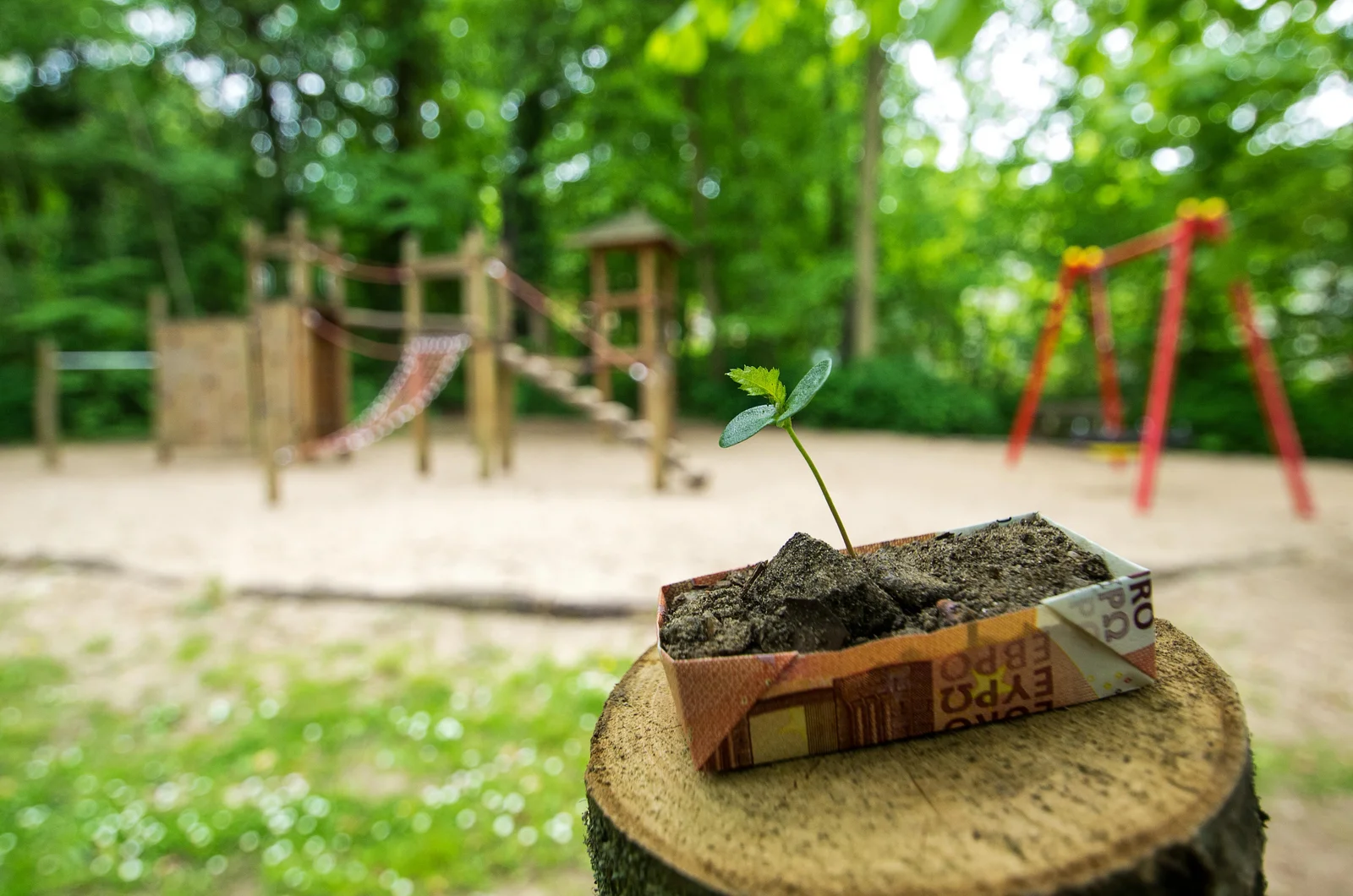
Events and Field Trips
A wide range of events and field trips take place regularly at HNEE. To support organisers in making these as sustainable as possible, a → guideline for the organisation of sustainable events has been developed.
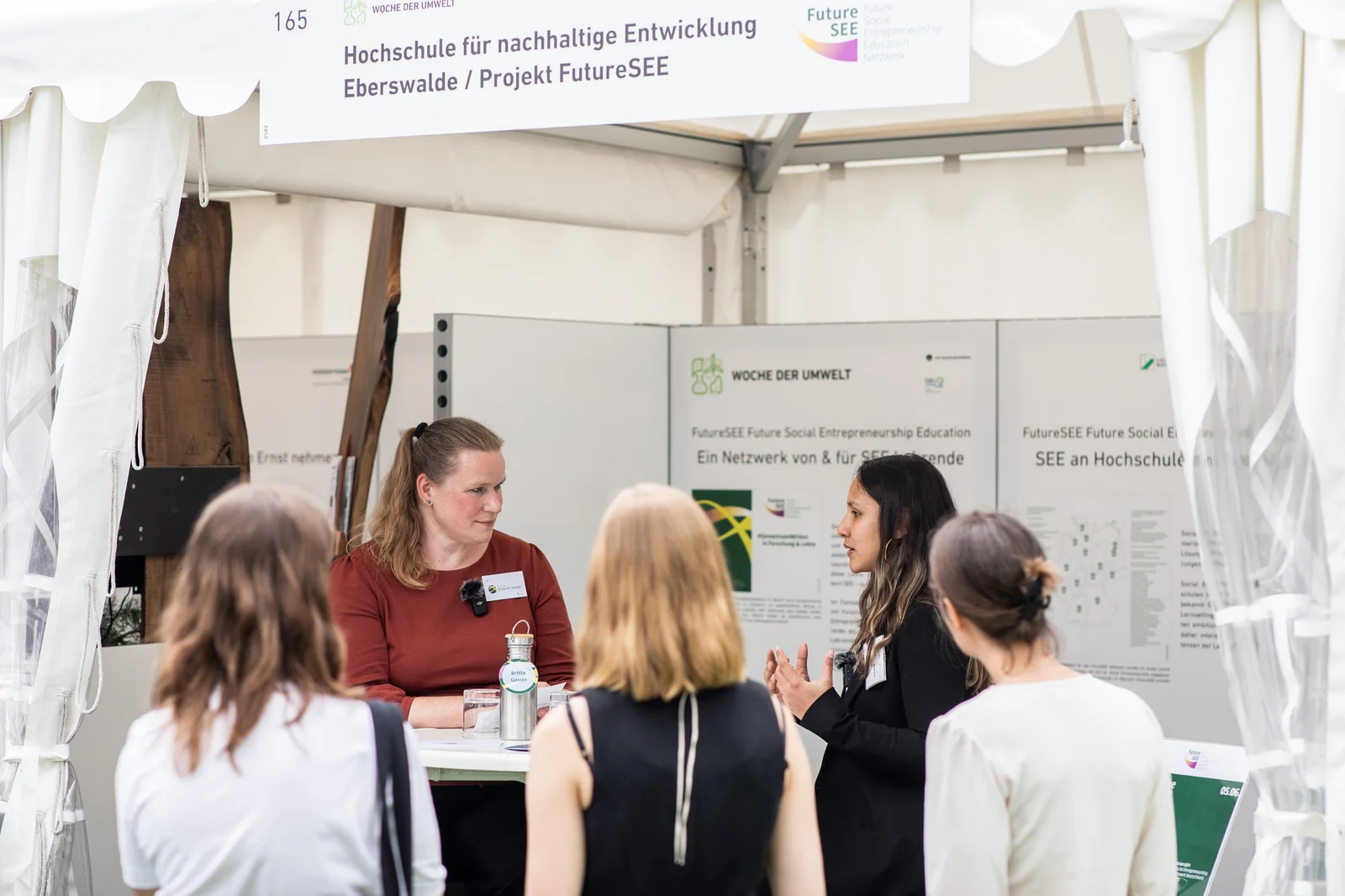
Diversity
The → Network for Diversity and Equal Opportunities at HNEE brings together representatives and coordinators to actively contribute to the implementation of the → Gender Equality Concept and the → Anti-Racism Concept. The aim is to foster a respectful, open, and inclusive university environment where diversity is both embraced and promoted. Together with students, employees, and external partners, the network advocates for participation, visibility, and equal opportunities — regardless of gender, background, religion, disability, age, or sexual orientation. Its mission is to dismantle barriers, highlight diversity as a strength, and enable full involvement.
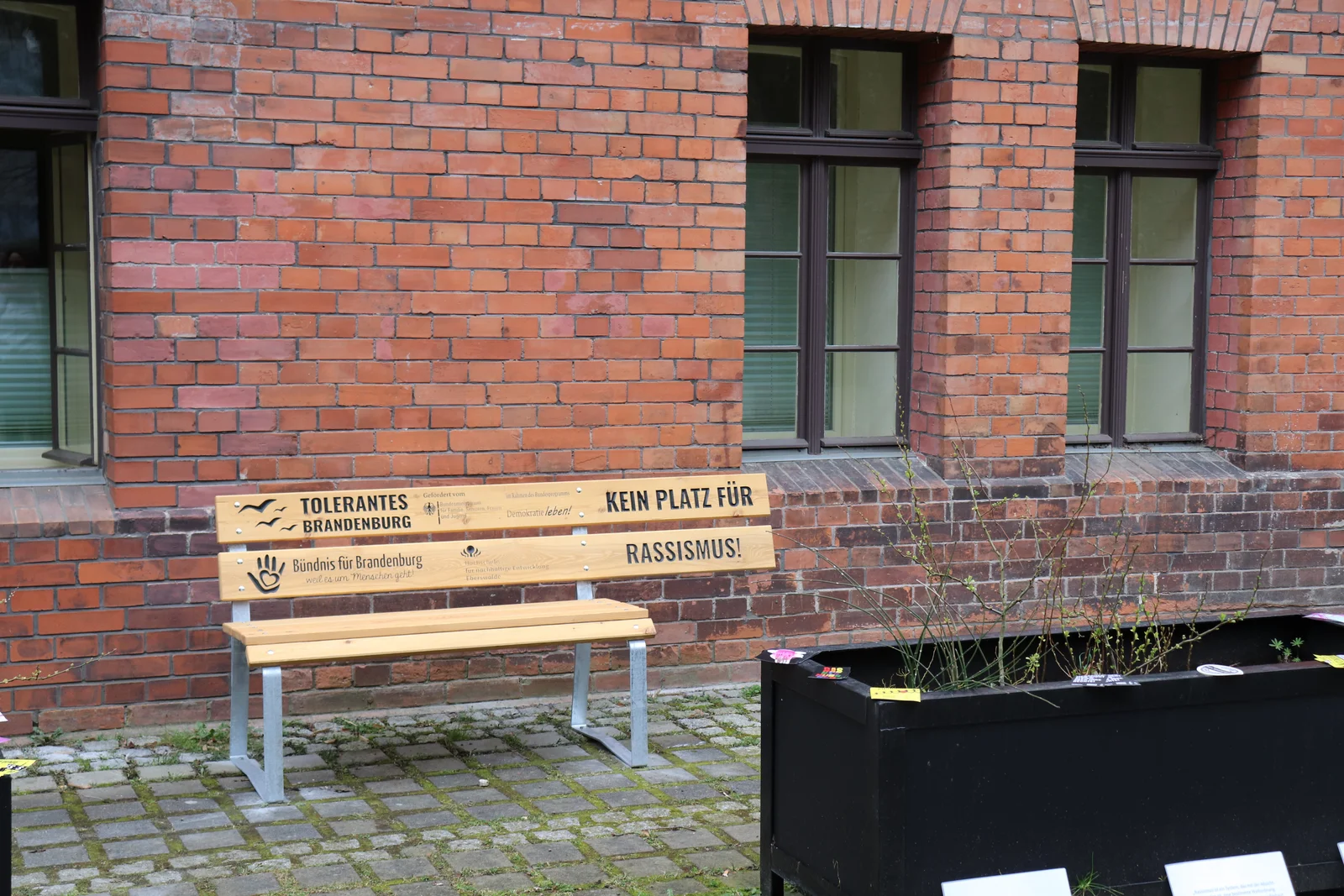
Commitment & Participation
Social engagement and active participation are a core part of HNEE’s identity. The university's → mission statement, developed participatively in 2021 and holistically focused on sustainable development, sets out the goal of fostering “change agents”. Students are encouraged to take responsibility for sustainable development. HNEE actively supports voluntary commitment, for example through awards recognising student engagement and via the Deutschlandstipendium scholarship. With two student vice presidents, student perspectives are integrated into university decision-making processes at an early stage.
The “Round Table for Sustainable HNEE Development” serves as a democratic participatory body that regularly brings together university members and partners to collaboratively develop ideas and initiatives for sustainable development. Since its launch in 2010, 27 round tables have taken place (as of April 2025). Concrete measures are developed in subsequent working groups and then submitted to university leadership for decision—always with the aim of advancing HNEE’s sustainable development together.

Health & Family Friendliness
HNEE offers comprehensive support for students and staff with family responsibilities — including parent-child rooms on both the city and forest campuses, financial assistance, and flexible working and study arrangements. The university also promotes health and wellbeing through the Healthy University working group (AG Gesunde Hochschule), which develops and implements a range of health promotion measures. Further information is available on the → Family-friendly university and → Healthy university working group pages.
